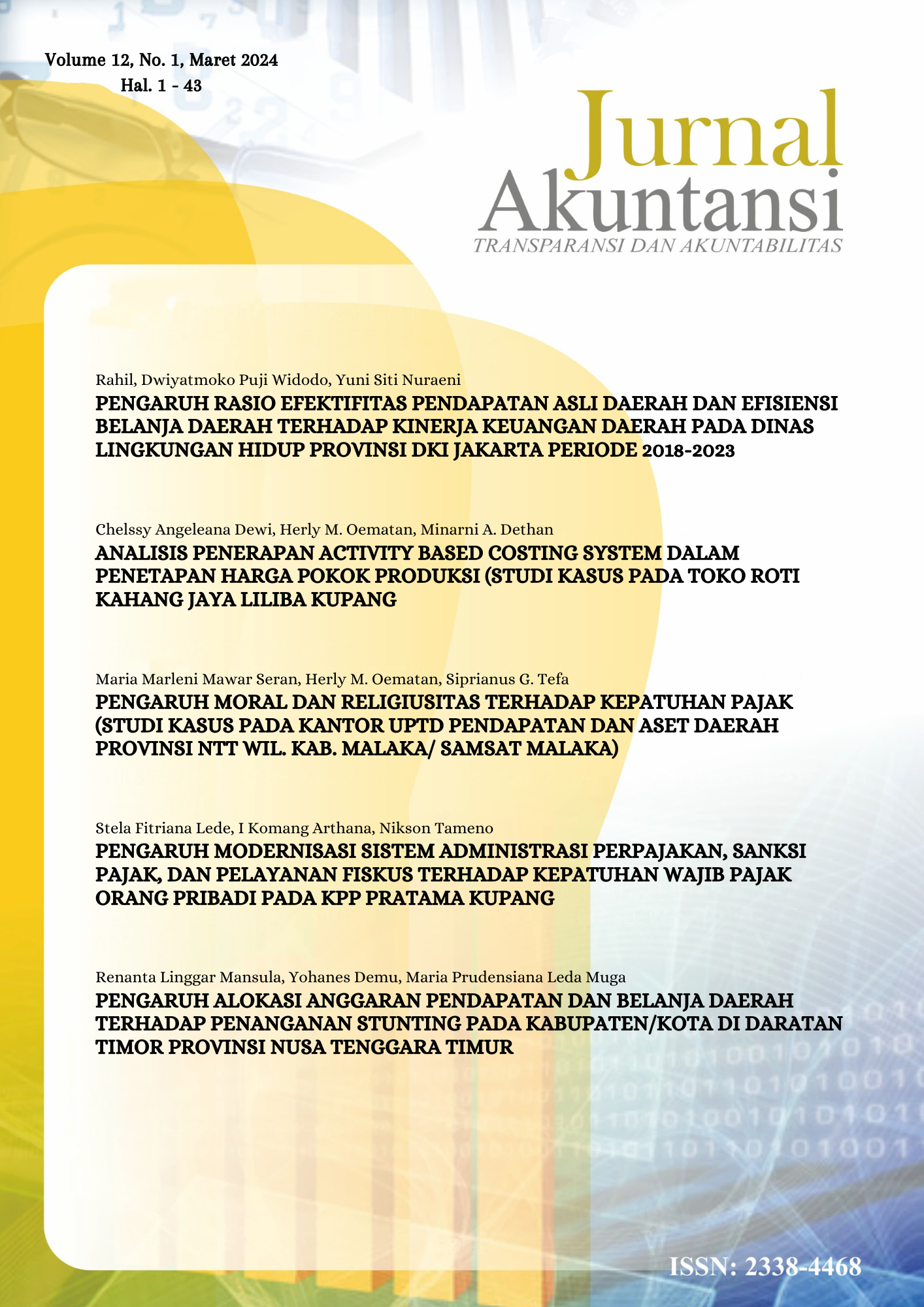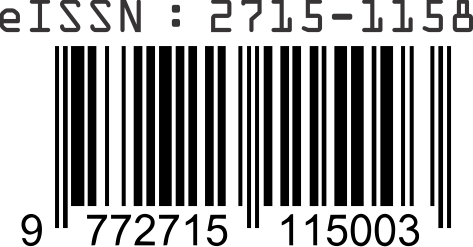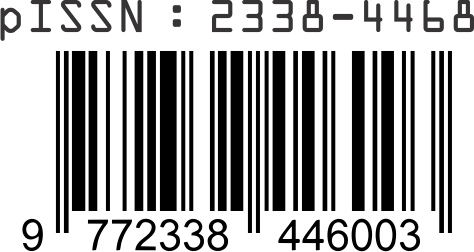PENGARUH MORAL DAN RELIGIUSITAS TERHADAP KEPATUHAN PAJAK (studi kasus pada Kantor UPTD Pendapatan dan Aset Daerah Provinsi NTT Wil. Kab. Malaka/ SAMSAT Malaka)
Abstract
The purpose of this research is to determine the influence of morality and religiosity of taxpayers on the compliance of motor vehicle taxpayers in Malaka Regency. This study was conducted at the UPTD Office of Revenue and Regional Assets of the NTT Province in the Malaka District/Samsat Malaka. The research method used is descriptive quantitative research. The types of data used in this research are secondary and primary data, and the analysis method employed in this study utilizes formulas and indicators of morality, religiosity, and tax compliance. According to the analysis results from the respondents collected through the distribution of questionnaires, it was found that the morality of taxpayers has a positive influence on tax compliance. Taxpayers with a high moral standard tend to be more compliant in fulfilling their tax responsibilities. However, religiosity does not show an influence on taxpayer compliance. This proves that even though individuals are religious, their level of tax compliance is not directly affected by that aspect of religiosity.

 Maria Marleni Mawar Seran(1*)
Maria Marleni Mawar Seran(1*)















